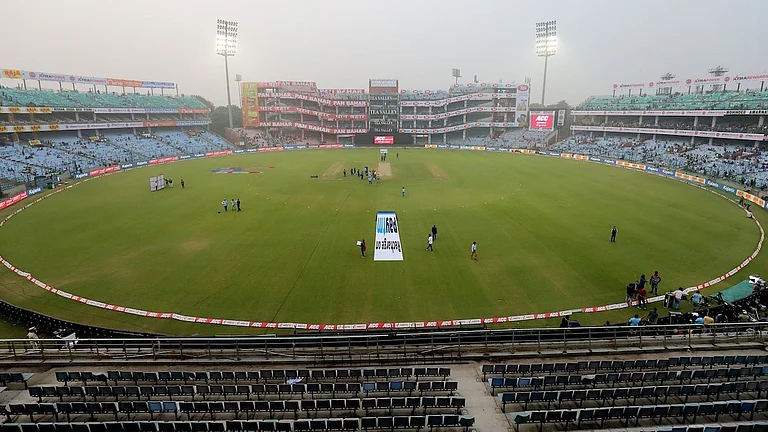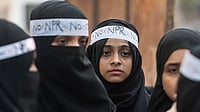In February, tribals, farmers, and other marginalised communities marched from Nashik to Mumbai braving inclement weather along the route. Their joint demands included the implementation of the Forests Rights Act, 2006 across Maharashtra.
Twenty-one districts of Maharashtra are yet to see the implementation of the Scheduled Tribes and Other Traditional Forest Dwellers (Recognition of Forest Rights) Act, 2006, popularly known as the Forest Rights Act (FRA). Lack of clarity and understanding of the law and lethargy are the primary reasons for its non-implementation in these districts, say officials in the know of happenings.
The Forest Rights Act was passed in India in 2006 to recognise the traditional rights of tribal and other communities who live in the forests over the control and use of natural resources. This landmark legislation seeks to give the forests back to the people who live in it and recognises their role in the conservation of forests.
There is a contradiction in the laws enacted by the Maharashtra government pertaining to the governance of forests spread across the state. While the Wildlife Protection Act, 1972, and the Forest Conservation Act, 1980, were legislated to protect the wildlife within the forests, the Forest Rights Act, 2006, is focused on recognising the rights of communities that inhabit the forests and the need to institutionalise their access to the forest and its reserves. The forest department when implementing the laws pertaining to wildlife protection and forest conservation does not allow the communities living in the forests access to the natural resources within the forests, says a source.
“They file cases against the tribals for picking even wild fruits that grow in the forests. The tribals are illiterate and are being harassed by the forest guards,” says a source.
Wildlife conservationists too echoed the sentiments of this source. One of the conservationists working closely with the forest guards says that the tribals and other communities are terrified of the forest guards, particularly those living in the forests in Gadchiroli, Chandrapur, Bandara, and Gondhia districts of the state.
In September 2020, then-Maharashtra Governor B S Koshiyari had issued a notification modifying the Forest Rights Act, 2006, that enabled the tribals and others who traditionally lived in the forests to build houses in neighbouring forest areas. This was intended as a relief to the scheduled tribes (STs) and other communities who were living in the scheduled areas but were migrating to other places outside their native villages due to the lack of housing areas for their growing families.
In the 16 years since FRA was enacted, Maharashtra has emerged as the leader amongst the states in implementing the provisions of the act. According to a study conducted by the Community Forest Rights Learning and Advocacy in 2017, during the 10th anniversary of FRA’s implementation in the state, Maharashtra’s success story was due to the record recognition of the community forests rights in the Gadchiroli district. The state had recognised the rights of an estimated 66 per cent of the potential land in Gadchiroli. The findings then pointed out the lack of implementation of the provisions in 21 districts of Maharashtra.
Under the law, traditional forest dwellers can seek either individual or community rights from the state government for forest lands inhabited by them. This gives them the ownership to protect and conserve the forests in their areas. They could also gather bamboo or tendu leaves which, before the enactment of this Act, was illegal.
The strong Adivasi movement in Gadchiroli is the reason for the top performance of this district in the implementation of FRA. Mendha Lenka and Mardha emerged as the first two villages not only in Gadchiroli but in the country where community forest rights were recognised. The applications from these two villages became the format for the applications after 2012.
In May 2014, Maharashtra notified the village forest rules which already existed under the Indian Forest (Maharashtra) Act. Under these rules, the rights of the communities for the management of the forest produce were transferred from the communities back to the forest department. Out of lack of knowledge, the villages opt for the management of the produce by the forest department though they can choose to manage it under the community forest rights.
According to sources, the Maharashtra government, starting in 2017, has begun to lease out forest land to the Forest Development Corporation of Maharashtra without seeking the consent of the gram sabhas in the villages. The joint forest management committees set up in the villages by the state government give an upper hand to the government’s representatives in decisions.
In May 2018, the then-Maharashtra government started multi-pronged strategies to rework the implementation of FRA across the state. On 11 May 11 2018, the Van Mitra Mohim was launched which involved a series of training programs for officers at the sub-division level committee and the district-level committee. This exercise was aimed at understanding the nature and process of recognising forest rights claims. A sizeable number of forest rights coordinators were trained to facilitate the filing of new claims, review rejected claims, address pending claims, and speed up the process of hearing appeals at various levels.
In May 2018, to ensure a better implementation of FRA, the office was shifted from Tribal Commissionerate in Nashik to Tribal Research and Training Institute in Pune.
According to Ajit Navle, General Secretary of the All India Kisan Sabha, the major reason for the lack of implementation of FRA is due to the lack of clarity. Since 2017, Navle and others have been helming the Kisan Long March, a walkathon by farmers from various parts of Maharashtra to Azad Maidan in Mumbai. In March 2018, about 60,000 to 70,000 farmers, tribals, and others from marginalised sections marched to Mumbai from Nashik to demand among other things the implementation of the Forest Rights Act. This march took place again in February 2019 and in March 2023 for the same demands.
In February this year, many of those who marched had told Outlook that if they refused to pay the forest officials, they were branded as “encroachers” and their homes and often ready-to-harvest standing crops were destroyed by the forest guards. Many wildlife activists working in the Vidarbha forests revealed that the Adivasis and other forest dwellers were harassed by the forest officials.
The Vidarbha region of Maharashtra has seen the implementation of community forest rights in a big way. The community forest rights claims have been recognised in the name of the gram sabhas under the Scheduled Tribes and Other Traditional Forest Dwellers (Recognition of Forest Rights) Act, 2006. The Vidarbha region houses 28 per cent of the tribal population of the state and has 53 per cent of the state’s total forest cover.
This area with its large tribal population suffers from poor development, including poor infrastructure, agrarian crisis, unemployment, poverty and migration from the rural areas to the cities. The forest dwellers in Vidarbha have depended on agriculture and forest resources for their subsistence due to the lack of employment opportunities and means of livelihood. The Maharashtra Tribal Development Department is implementing a range of community forest resource management plans with grassroots organisations and non-governmental organisations in the region.


























